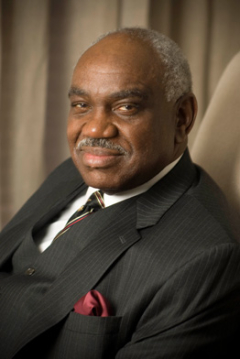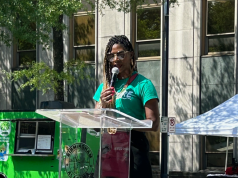 From Staff and wire reports
From Staff and wire reports
As a crusading civil rights attorney and a widely respected federal judge, U.W. Clemon has crafted an inspiring, influential career and has one of the best jobs.
U.W. Clemon says he first knew that he wanted to become a civil rights lawyer when, in 1956, at the age of 13, he witnessed white police officers threatening one of his friends, an African-American teenager, during a stroll near his hometown of Fairfield, Ala. Less than a decade later, as a student at Miles College, Clemon led a boycott of Birmingham’s downtown stores to protest against segregation in that city. It resulted in a 40 percent decrease in sales for business owners and helped to spark Martin Luther King Jr.’s interest in organizing what became his famous Birmingham campaign.
“I remember the commitment he inspired in me,” Clemon says of King, recounting the time he met the American icon, along with civil rights leader Ralph David Abernathy, at a Birmingham coffee shop in April of 1963. That day, King referred to Clemon as “a leader.”
Fast forward 50 years, and Clemon, who in 1980 became the first African-American judge to ascend to the federal bench in the state of Alabama, talks about these experiences with a firm, matter-of-fact air. The extent to which equality issues have influenced his life is unmistakable, and, even today, the sense of duty he felt toward ending segregation in Birmingham as a young man could not be more evident.
That passion for justice and fairness is what led Clemon to Columbia Law School, which maintained deep-rooted connections to the NAACP Legal Defense and Educational Fund (LDF). His adviser, Professor Walter Gellhorn, encouraged by Clemon’s desire to practice civil rights law in the heart of Alabama, helped the young scholar secure a part-time position at the LDF and arranged a meeting with Jack Greenberg who was then serving as the LDF’s director-counsel.
After graduation, Clemon returned to his home state to work on cases in conjunction with the LDF. The organization provided him with an Earl Warren Scholarship—a stipend that, at the time, helped young civil rights lawyers establish their own offices. “Jack Greenberg made it easy to come back to Alabama,” Clemon says.
In one of his first cases, Clemon fought to end racial segregation in his childhood school district. He also famously filed a lawsuit against the University of Alabama and its revered football coach, Paul “Bear” Bryant, for not recruiting Black players.
In 1974, Clemon was elected to the Alabama State Senate. During the next five years, he fiercely butted heads with Governor George Wallace, resulting in many public and hostile arguments. When Clemon was later nominated for a federal judgeship in the Northern District of Alabama, he says, with a tinge of pride, that it was “the most controversial judicial appointment in the state,” given his history of working against government-mandated segregation. Yet, he was unanimously confirmed by the U.S. Senate.
Clemon served as a federal judge in the Northern District of Alabama for nearly 30 years. During his seven-year tenure as chief judge, he oversaw the court’s transition to an all-electronic case filing system, as well as its overhaul of the jury selection process—which increased minority representation. He points to his role as the trial judge in Lilly Ledbetter v. Goodyear as his crowning judicial achievement.
Now retired from the bench, Clemon serves as a shareholder at White Arnold & Dowd in Birmingham. During the past several years, he has worked on cases involving Alabama’s congressional redistricting, the bankruptcy of Jefferson County, Ala., and the investigation into possible financial fraud at Alabama State University. “Life is totally interesting,” he says.



